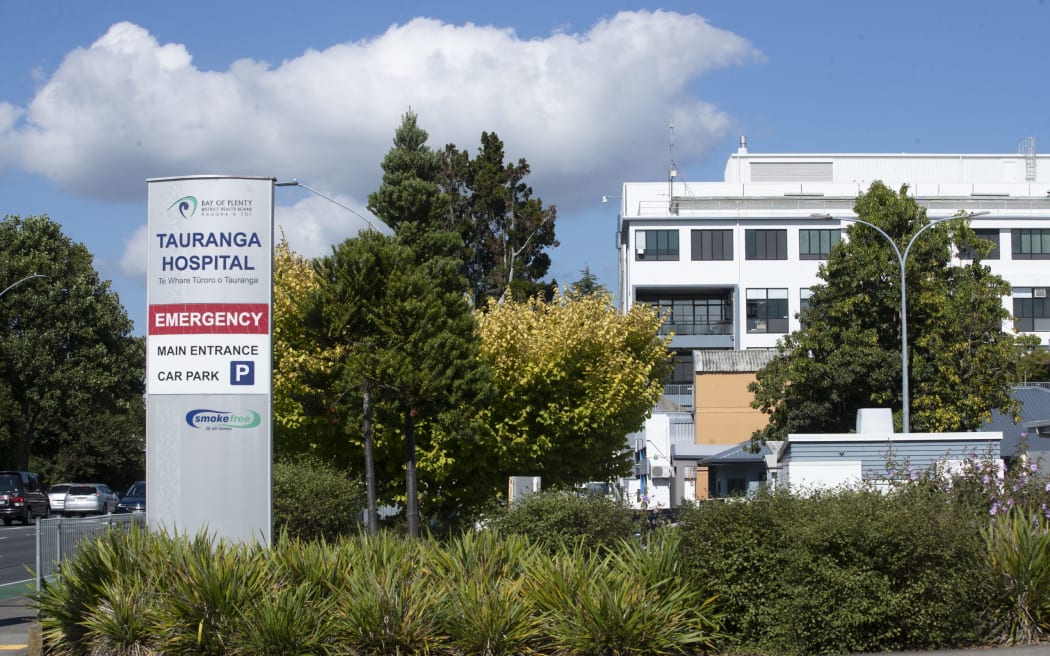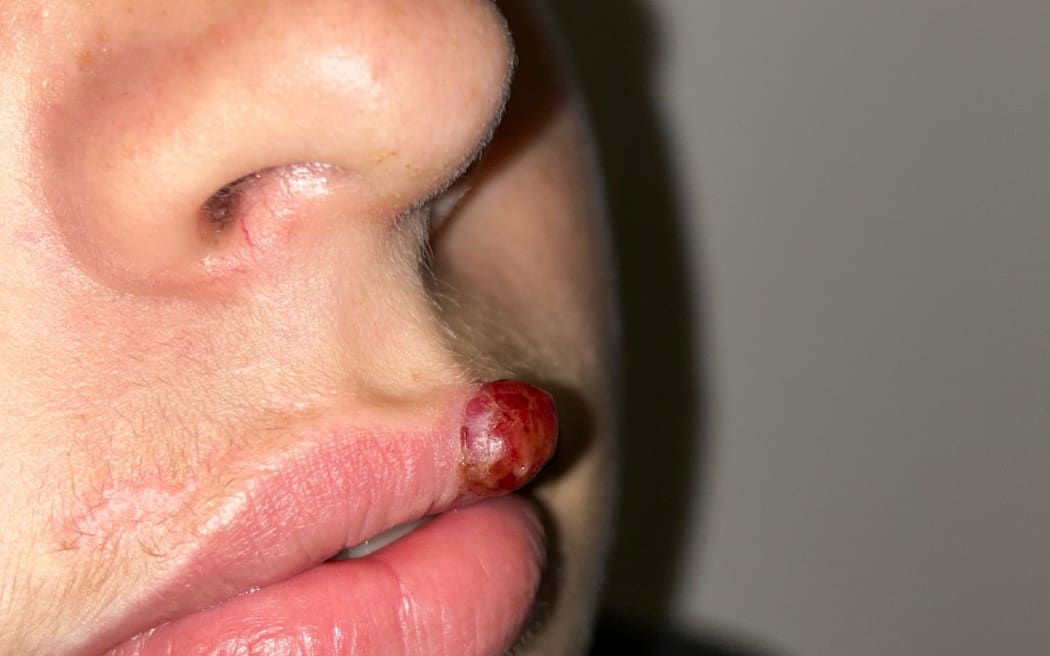
Staff shortages and high demand for services meant patients were waiting "longer than the hospital would like" for planned care. Photo: SunLive
A Tauranga teenager with a bleeding tumour on his lip is facing up to eight months wait for treatment through the health system.
His stepfather Gus said the 13-year-old was bullied daily at school because of the lesion. The bullying prompted Gus not to reveal his surname to protect his son's identity.
Gus told Local Democracy Reporting his son was suffering emotionally and missing school.
"He's very withdrawn, very quiet."
The tumour started out as a small blister on his lip then within two weeks it was the size of a grape, Gus said.
It was uncomfortable, a constant pressure on the lip and bled daily, he said.
"There's blood everywhere, it's a messy thing."

In June, they went to their GP where it was diagnosed as a pyogenic granuloma and they were referred to the paediatric department at Tauranga Hospital.
Pyogenic granulomas are benign raised tumours on the skin or mouth that bleed easily.
After an initial letter, the family heard nothing for nearly three months.
Frustrated, Gus contacted the hospital and was told it could be another four to eight months for treatment because of the way the hospital prioritises cases.
"That's when I blew my top. By that time, it would have been a year that we've been waiting for this.
"For a teenager to go through something like that, it's like they [the hospital] almost don't want to acknowledge the emotional trauma they put these kids through.
"They only look at the physical aspects of it.
"When somebody is mentally disadvantaged because of a decision that they make, I see that as a very severe fault, almost like an injustice in the system."

The wait could be up to eight months to have the growth removed the family were told. Photo: Supplied via LDR
He contacted the complaints department of the hospital and others around the country as well as leaving messages on politicians' Facebook pages.
Gus then received an appointment with a specialist contracted by the hospital last week.
The doctor confirmed the wait could be up to eight months but offered their services privately at a reduced cost, he said.
The family would have the tumour removed privately so his stepson does not "suffer any more", acknowledging they are in a "privileged position" to do so.
Asked how he felt having to go to these lengths to be seen and treated, Gus replied: "You feel like a second-hand citizen".
"I do acknowledge that these people [doctors] have it difficult, because they work in a system that is broken.
"Those circumstances forced me to fight the same system that thousands of New Zealanders fight each and every week."
Te Whatu Ora Bay of Plenty acting group director of operations Sarah Mitchell said they were unable to comment on individual cases.
Referrals for pyogenic granulomas were made by a GP, and if accepted the patient would be seen for First Specialist Assessment (FSA), she said.
"If the outcome of FSA is a referral for treatment and this is accepted, patients are prioritised and those with the highest clinical need will be seen first."
The target was for planned care procedures to happen within four months of referral for treatment, Mitchell said.
"Some services are experiencing high demand and high patient acuity, and have been impacted on by workforce shortages."
"Whilst we are working to address workforce shortages, this together with the increased demand on services means some patients who are less urgent are waiting longer than we would like.
"Patients are actively monitored and waitlists updated to reflect any change in their condition."
They were also advised to see their GP if their condition worsened, Mitchell said.
"Te Whatu Ora recognises the potential for impact on mental health for people with this condition and advises families with regard to support available through their GP and mental health services."
Local Democracy Reporting is Public Interest Journalism funded through NZ On Air



